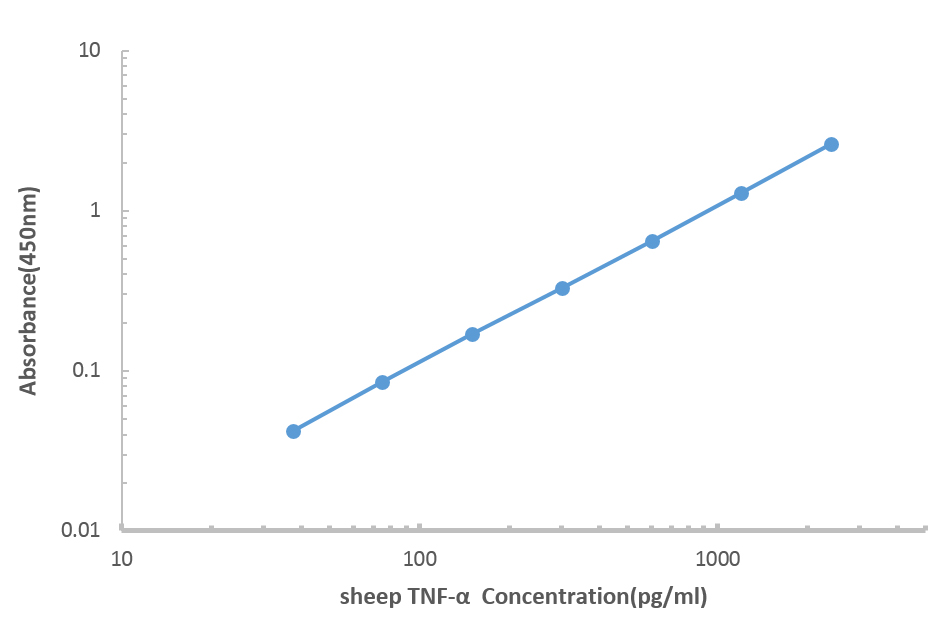Sheep TNF ELISA KIT (96 T)
CNY 3,200.00
货期*
3周
规格
Specifications
| Product Data | |
| Description | Sheep TNF-α Immunoassay |
| Size | 96 T |
| Format | 96-well strip plate |
| Assay Type | Solid Phase Sandwich ELISA |
| Assay Length | 4 hours |
| Signal | Colorimetric |
| Curve Range | 37.5-2400pg/ml |
| Sample Type | Serum, plasma, Cell culture supernatant |
| Sample Volume | 100 uL |
| Specificity | This assay recognizes both natural and recombinant Sheep TNF-a |
| Sensitivity | 15 pg/mL |
| Reactivity | Sheep |
| Interference | No significant interference observed with available related molecules. |
| Components |
|
| Background | TNF-α, the prototypical member of the TNF protein superfamily, is a homotrimeric type-II membrane protein. Membrane bound TNF-α is cleaved by the metalloprotease TACE/ADAM17 to generate a soluble homotrimer. Both membrane and soluble forms of TNF-α are biologically active. TNF-α is produced primarily by macrophages, but it is produced also by a broad variety of cell types including lymphoid cells, mast cells, endothelial cells, cardiac myocytes, adipose tissue, fibroblasts, and neuronal tissue. Cellular response to TNF-α is mediated through interaction with receptors TNF-R1 and TNF-R2 and results in activation of pathways that favor both cell survival and apoptosis depending on the cell type and biological context. Activation of kinase pathways (including JNK, ERK (p44/42), p38 MAPK and NF-κB) promotes the survival of cells, while TNF-α mediated activation of caspase-8 leads to programmed cell death. TNF-α plays a key regulatory role in inflammation and host defense against bacterial infection, notably Mycobacterium tuberculosis. TNF-α causes many of the clinical problems associated with autoimmune disorders such as rheumatoid arthritis, ankylosing spondylitis, inflammatory bowel disease, psoriasis, hidradenitis suppurativa and refractory asthma. The role of TNF-α in autoimmunity is underscored by blocking TNF-α action to treat rheumatoid arthritis and Crohn’s disease. |
Documents
| Product Manuals |
Customer
Reviews
Loading...


 United States
United States
 Germany
Germany
 Japan
Japan
 United Kingdom
United Kingdom
 China
China

